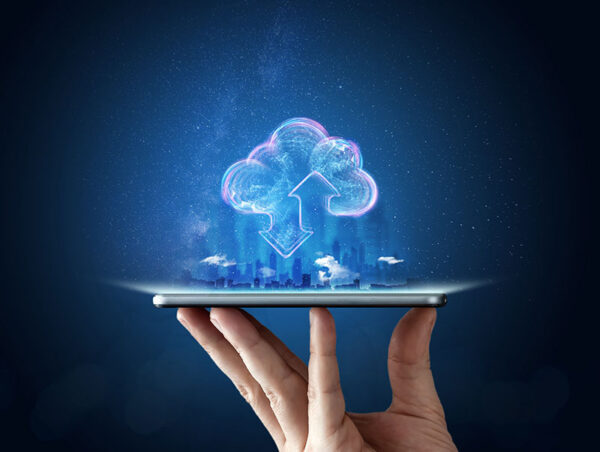The Power of Convergence Technologies: Redefining Innovation for Tomorrow
In our fast-paced digital era, convergence technologies are at the forefront of shaping how industries evolve and how we experience the world. This concept revolves around integrating distinct technological advancements, allowing them to work in harmony and deliver outcomes that go beyond their individual capabilities. By uniting various systems, platforms, and devices, convergence is creating new avenues for progress across every sector.
What Are Convergence Technologies?
Convergence technology involves the merging of previously separate technologies into a cohesive, interoperable ecosystem. It facilitates the seamless exchange of data and functionality between devices and platforms. From communication tools to digital applications, convergence breaks down barriers and fosters integration. A great example is the smartphone, which blends computing power, camera functionality, GPS, and communication into a single, unified tool.
How Convergence is Impacting Key Industries?
Convergence is sparking transformation across numerous industries, enabling more efficient operations and innovative solutions. Here’s how different sectors are embracing this shift:
1. Healthcare Revolution:
In healthcare, convergence is reshaping how medical professionals diagnose and treat patients. The integration of AI, wearable devices, and telemedicine is enabling real-time monitoring, personalized healthcare solutions, and improved patient outcomes. The collaboration between medical equipment, data analytics, and cloud technology allows doctors to make quicker, more accurate decisions, providing a higher standard of care from virtually anywhere.
2. Automotive Innovation:
The automotive industry is experiencing a major shift through the convergence of AI, IoT, and sensor technology. Autonomous vehicles are becoming more advanced, capable of interacting with infrastructure, predicting hazards, and navigating complex environments without human input. This convergence is transforming transportation by promising safer roads, reduced emissions, and more efficient travel.
3. Financial Transformation:
In finance, convergence is modernizing the way we manage money. By blending blockchain, AI, and cloud computing, financial institutions are optimizing transaction speeds, enhancing security, and providing more personalized services. These innovations are disrupting traditional banking models, while fintech companies are making financial services more accessible, inclusive, and efficient for all.

4. Retail Evolution:
Retailers are leveraging convergence technologies to enhance the customer experience. E-commerce platforms, augmented reality, and AI are merging to deliver personalized shopping experiences, allowing customers to virtually try on products, receive customized recommendations, and check out seamlessly. This convergence is improving inventory management and supply chains, driving operational efficiency while keeping customers satisfied.
Challenges to Overcome in Convergence:
Despite its benefits, convergence technologies bring about some challenges. One of the major hurdles is ensuring that different systems and technologies can be seamlessly integrated without compatibility issues. Additionally, security risks grow as more devices and systems become interconnected, requiring strong measures to protect data and infrastructure. Moreover, the speed of innovation means businesses need to constantly adapt to stay competitive.
The Future Potential of Convergenc:
The future of convergence technologies is promising, with possibilities expanding rapidly. As more industries integrate AI into their everyday tools, we can expect even smarter devices, hyper-personalized services, and the growth of interconnected ecosystems like smart cities.
5G technology will play a crucial role in this future by unlocking faster connections, enabling real-time communication between a multitude of devices, and driving innovations in sectors like autonomous vehicles, IoT-enabled homes, and urban infrastructure.
Final Thoughts: Convergence as a Game-Changer:
Convergence technologies are reshaping the way industries function, fostering innovation, and improving the quality of life. By integrating diverse technologies into unified platforms, businesses can offer more streamlined, efficient services. As we continue into a future powered by connectivity, the possibilities for convergence are limitless, creating new opportunities and pushing the boundaries of what technology can achieve.
FAQs:
1. What exactly is Convergence Technology?
Convergence technology is the integration of different systems, tools, or platforms into one cohesive solution. By merging diverse technologies, it allows them to interact smoothly, enhancing functionality and creating new avenues for innovation.
2. How does convergence technology enhance everyday experiences?
From smartphones to smart homes, convergence technology simplifies daily life by merging multiple functions into a single device or system. This integration brings greater convenience, efficiency, and connectivity to routine activities, making tasks faster and smarter.
3. Which industries are seeing the most impact from convergence technologies?
Industries like healthcare, automotive, retail, and finance are seeing transformative changes thanks to convergence. From streamlining business processes to enhancing customer interactions, convergence is revolutionizing how these sectors operate.
4. What’s the role of convergence in developing smart cities?
In smart cities, convergence technologies unify IoT devices, data analytics, and automation to create more efficient urban systems. This results in better traffic management, optimized energy use, and improved public services, making cities more sustainable and livable.
5. What hurdles do companies face when adopting convergence technology?
The main challenges include ensuring that different systems work seamlessly together, addressing data security risks, and keeping up with the rapid pace of technological advancement. Companies also need to invest in infrastructure and skilled talent to fully capitalize on convergence.
6. Why is 5G so important for convergence technology?
5G is key to enabling real-time communication and faster data transfer between devices. It empowers convergence by connecting more devices reliably, paving the way for advancements in areas like autonomous driving, smart devices, and industrial automation.
7. How is convergence technology transforming healthcare?
Convergence in healthcare brings together AI, telemedicine, and smart devices, giving medical professionals real-time access to patient data. This allows for faster diagnosis, personalized treatment, and improved patient care even remotely.
8. Can convergence technology help businesses reduce operational costs?
Yes, convergence streamlines processes and automates routine tasks, resulting in more efficient operations. This reduces costs related to labor, errors, and outdated practices while improving productivity and scalability.
9. What are some examples of convergence technology improving the retail experience?
Retailers are leveraging the combination of e-commerce, AI-driven insights, and augmented reality to personalize shopping experiences. Customers can receive tailored product suggestions, virtually try on items, and enjoy smoother, faster online transactions.
10. How secure are systems built on convergence technology?
While convergence unlocks numerous benefits, it also introduces potential security vulnerabilities as interconnected systems share more data. Implementing robust cybersecurity practices, regular updates, and stringent data protocols are essential to ensuring the safety of these integrated networks.




